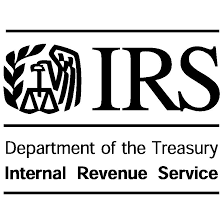IRS Pressed to Crack Down on Hobby Losses
Tax Practice: IRS Pressed to Crack Down on Hobby Losses.
 A new report demonstrates that the IRS could be conducting research to recognize and identify taxpayers who are deducting hobby losses in order to offset the costs with their actual income.
A new report demonstrates that the IRS could be conducting research to recognize and identify taxpayers who are deducting hobby losses in order to offset the costs with their actual income.
The audit report, which came from the Treasury Inspector General for Tax Administration, shows that the IRS’s methodologies for arranging taxpayers with high-income who may counterbalance their salary with hobby losses don’t expand the utilization of all the valuable taxpayer data accessible to the IRS. At the point when returns containing potential hobby losses are chosen for review, the analysts don’t generally address the hobby loss issues, as indicated by the report.
TIGTA’s assessment of IRS information from handling years 2011 through 2014 recognized 9,699 individual tax returns from the fiscal year 2013 that asserted a Schedule C loss of at minimum $20,000, gross receipts of $20,000 or less, and reported wages of a minimum of $100,000. The taxpayers likewise reported losses in four years back to back, for the tax years 2010 to 2013. TIGTA’s audit of a measurably legitimate example of 100 tax returns verified that 88 of the tax returns demonstrated a sign that the Schedule C organizations were not engaged in for profit. TIGTA gauges that 7,511 returns in the total sample population of taxpayers may have improperly utilized hobby losses costs to lessen charges by as much as $70.9 million for the tax year 2013.
Segment 183(a) of the Tax Code by and large denies business charge findings for exercises “not engaged in for profit” and Section 183(d), additionally alluded to as the “hobby loss” procurement, gives an assumption that most activities are occupied with for benefit if the activity is gainful for at least three of a sequential five-year duration (two of seven for breeding, training, showing, or racing of horses).
A September 2007 TIGTA report found that roughly 1.2 million citizens in the tax year 2005 may have utilized hobby losses to lessen their assessable earnings to possibly abstain from paying $2.8 billion in charges. Distinguishing and reviewing extra individual returns that dishonorably deduct hobby losses could reduce defiance here. TIGTA led another review to catch up on the 2007 report to figure out if the IRS was boosting chances to distinguish the most outstanding Schedule C resistance.
“Taxpayers with significant amounts of income from other sources may attempt to reduce their tax liability by including losses from activities not engaged in for profit,” said TIGTA Inspector General J. Russell George in a statement. “The IRS needs to effectively identify these taxpayers in order to deter future non-compliance.”
TIGTA prescribed that the IRS make utilization of research abilities in its Small Business/Self-Employed Division to recognize high-salary individual returns with multiyear Schedule C losses and other elements that show that the taxpayer might not have a benefit or capital gain rationale for the hobby. The IRS ought to highlight the significance of the required filing checks in its initial determination of whether to seek after a hobby loss issue and provide devices to help inspectors in archiving their decision, the new report recommended.
In light of the report, IRS administration concurred with TIGTA’s suggestions and arrangements to take remedial actions.

